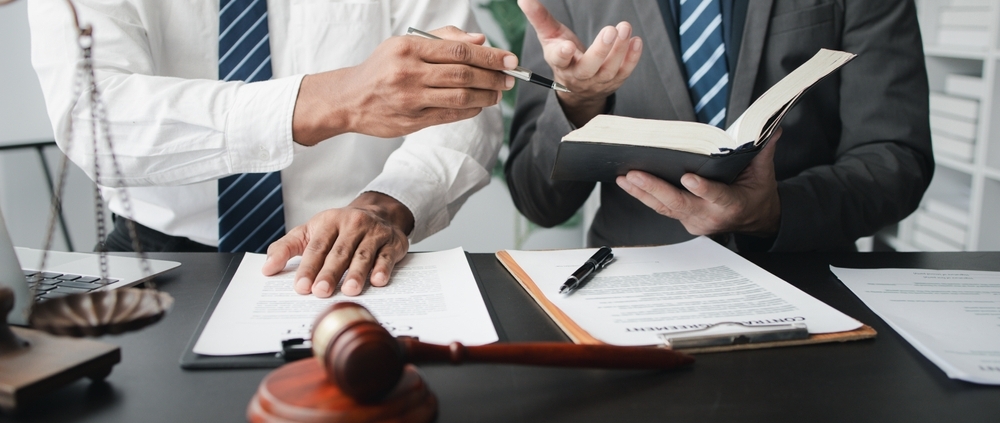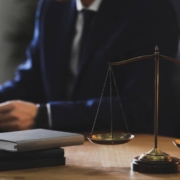7 Tips for Building a Strong Personal Injury Case
Hiring a Personal Injury Lawyer in South Florida can be one of the most crucial decisions you make after suffering from an accident. Whether it’s a car crash, slip and fall, or any other injury caused by someone else’s negligence, securing fair compensation often depends on how well your case is prepared. Victims are frequently overwhelmed with medical bills, insurance paperwork, and emotional distress, making the legal process even more daunting. But with the right approach, you can make your case stronger and more convincing to insurance companies or courts. Building a solid personal injury case isn’t just about presenting injuries—it’s about presenting proof, responsibility, and long-term impact. This article explores seven critical tips to help you strengthen your case from the moment the accident happens to the final resolution. These insights will prepare you to work closely with your attorney and ensure no detail is overlooked.
Preserve Evidence Immediately After the Incident
One of the most important steps in building a strong personal injury case is preserving evidence right from the scene of the accident. This includes taking photos of injuries, property damage, and the accident location itself. If there are skid marks on the road, broken stairs, or damaged equipment involved, documenting these physical aspects helps establish liability.
Gathering names and contact information of witnesses also strengthens your claim. Their statements can later support your version of events if discrepancies arise. If you’re unable to collect evidence due to injury, ask someone you trust to help. Remember, fresh evidence carries more weight. The longer you wait, the more likely it is that the scene changes or physical signs of the accident disappear.
In addition to physical evidence, you should retain any reports or documentation. Police reports, incident forms, and even informal notes taken at the scene can all serve as a foundation for your legal argument. Everything counts when proving the other party’s negligence.
Seek Medical Attention Right Away
Getting medical care immediately is vital—not just for your health, but also for your legal claim. Insurance adjusters and juries often interpret delays in treatment as a sign that the injuries were not severe. Therefore, you should visit a hospital or urgent care facility as soon as possible, even if your injuries seem minor.
Medical records offer a detailed and impartial account of the damage you’ve sustained. These records link the accident directly to your injuries and serve as objective proof of the pain and suffering you experienced. Follow-up treatments, medications, physical therapy, and doctor recommendations all become part of the narrative that supports your case.
Don’t forget to be honest with your doctors. Describe all symptoms, no matter how small they seem. Omissions can hurt your case later if you develop complications. Insurance companies may argue that these conditions are unrelated if they’re not documented from the beginning.
Document Everything Related to Your Case
Keeping a comprehensive record is essential in a personal injury case. This includes all medical bills, receipts for medication, transportation costs for medical appointments, and any property damage expenses. Each document creates a trail of financial losses that are directly linked to your injury.
Beyond financial documentation, maintain a personal injury journal. Write down daily notes about your pain levels, sleep disturbances, emotional struggles, or missed workdays. These entries help your attorney create a narrative around your suffering, which is especially useful when claiming non-economic damages like pain and emotional distress.
You should also save emails, texts, or letters exchanged with insurance companies, the other party, or even witnesses. All correspondence can become vital if the case heads to court. A detailed paper trail shows consistency, responsibility, and transparency—qualities that strengthen your credibility in front of any legal authority.
Don’t Talk About the Case on Social Media
In today’s connected world, it’s tempting to share personal updates online, especially after something as dramatic as an accident. However, posting photos, opinions, or even vague updates on social media can damage your case. Insurance companies and defense attorneys often monitor your online activity, looking for anything they can use to discredit you.
Even an innocent-looking photo of you smiling at a family gathering could be misinterpreted as proof that you’re not seriously injured. Comments about how the accident happened or how you feel about the other party can also be twisted against you. It’s safer to avoid social media altogether while your case is ongoing.
If you must remain active online, tighten your privacy settings and avoid discussing anything related to your injury or legal process. Warn friends and family not to tag you or post about your condition. A single misstep can weaken months of careful case-building.
Be Honest and Consistent with Your Lawyer
Honesty is the cornerstone of a strong attorney-client relationship. Your lawyer can only build a strong case if they know the full truth—this includes any previous injuries, pre-existing conditions, or even past lawsuits. Trying to hide facts can backfire dramatically during legal proceedings.
When your story is consistent from start to finish, it becomes much harder for the opposing party to raise doubts. Contradictions in your timeline, symptoms, or treatment can damage your credibility and reduce your chances of receiving fair compensation.
Trust your lawyer’s guidance and disclose every detail, even if it feels unimportant. Your attorney can decide whether it’s relevant or how best to manage sensitive information. Remember, your conversations with them are confidential. They’re there to protect your rights, not to judge your actions.
Avoid Direct Contact with Insurance Companies
After an accident, insurance adjusters often reach out quickly. They might seem friendly or even helpful, but their ultimate goal is to protect the company’s bottom line. Speaking to them without legal guidance can jeopardize your case. They may pressure you into giving a recorded statement, twist your words, or offer a settlement that’s far lower than what you deserve.
Always consult your lawyer before speaking with any insurance representatives. Let your attorney handle all communications. They know the tactics adjusters use and how to respond in a way that safeguards your interests.
Sometimes, the insurance company may try to delay or deny your claim altogether. In these cases, an experienced lawyer knows how to escalate the situation legally and push for a resolution. They will also ensure that deadlines are met and paperwork is filed correctly, which are critical for keeping your case valid.
Stay Patient and Let the Process Unfold
One of the most overlooked tips in building a strong personal injury case is having patience. The legal process can be slow and filled with negotiations, medical evaluations, and potential court appearances. While it’s tempting to want immediate closure, rushing into a settlement can mean walking away with less than you deserve.
Insurance companies often rely on your need for quick money and offer early settlements that barely cover your expenses. By waiting and working closely with your attorney, you allow time to assess the full extent of your injuries, potential long-term complications, and how your quality of life has been affected.
Building a strong case is about careful planning, strategy, and documentation. Every additional piece of evidence and every expert opinion your lawyer gathers adds strength to your case. Stay focused, communicate regularly with your legal team, and trust the process to yield a better outcome.
With the right preparation and the help of an Auto Accident Attorney in South Florida, your path to justice and recovery becomes far more achievable.






Leave a Reply
Want to join the discussion?Feel free to contribute!